Paul Maanen
A Portable Solution for Simultaneous Human Movement and Mobile EEG Acquisition: Readiness Potentials for Basketball Free-throw Shooting
Jan 10, 2025Abstract:Advances in wireless electroencephalography (EEG) technology promise to record brain-electrical activity in everyday situations. To better understand the relationship between brain activity and natural behavior, it is necessary to monitor human movement patterns. Here, we present a pocketable setup consisting of two smartphones to simultaneously capture human posture and EEG signals. We asked 26 basketball players to shoot 120 free throws each. First, we investigated whether our setup allows us to capture the readiness potential (RP) that precedes voluntary actions. Second, we investigated whether the RP differs between successful and unsuccessful free-throw attempts. The results confirmed the presence of the RP, but the amplitude of the RP was not related to shooting success. However, offline analysis of real-time human pose signals derived from a smartphone camera revealed pose differences between successful and unsuccessful shots for some individuals. We conclude that a highly portable, low-cost and lightweight acquisition setup, consisting of two smartphones and a head-mounted wireless EEG amplifier, is sufficient to monitor complex human movement patterns and associated brain dynamics outside the laboratory.
Mobile EEG artifact correction on limited hardware using artifact subspace recon- struction
Apr 28, 2022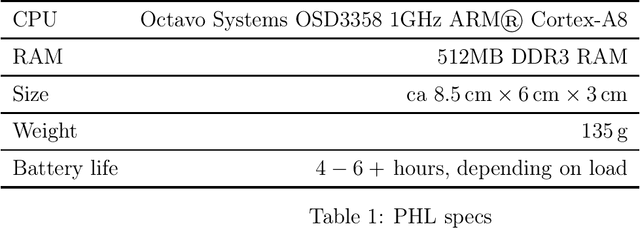
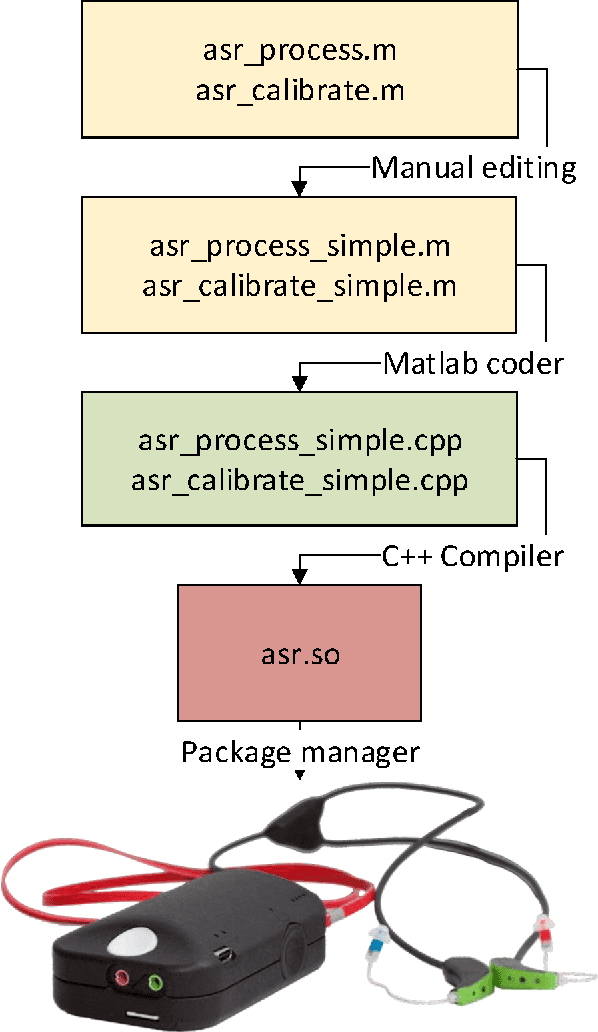
Abstract:Biological data like electroencephalography (EEG) are typically contaminated by unwanted signals, called artifacts. Therefore, many applications dealing with biological data with low signal-to-noise ratio require robust artifact correction. For some applications like brain-computer-interfaces (BCI), the artifact correction needs to be real-time capable. Artifact subspace reconstruction (ASR) is a statistical method for artifact reduction in EEG. However, in its current implementation, ASR cannot be used in mobile data recordings using limited hardware easily. In this report, we add to the growing field of portable, online signal processing methods by describing an implementation of ASR for limited hardware like single-board computers. We describe the architecture, the process of translating and compiling a Matlab codebase for a research platform, and a set of validation tests using publicly available data sets. The implementation of ASR on limited, portable hardware facilitates the online interpretation of EEG signals acquired outside of the laboratory environment.
Open community platform for hearing aid algorithm research: open Master Hearing Aid (openMHA)
Mar 03, 2021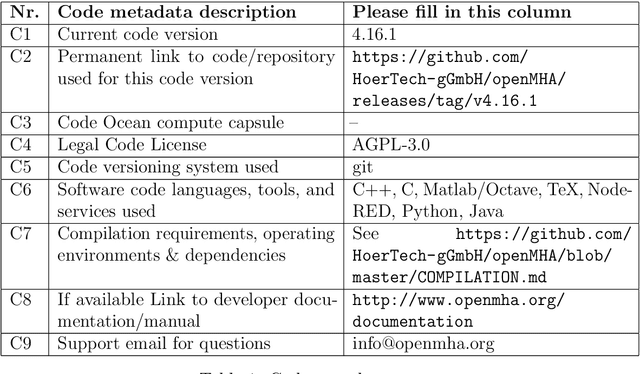
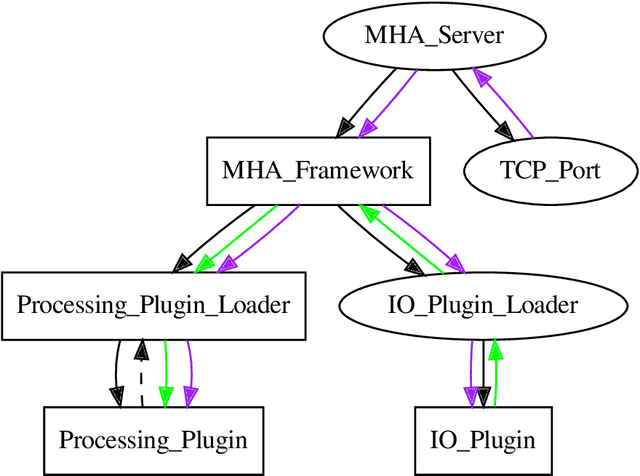

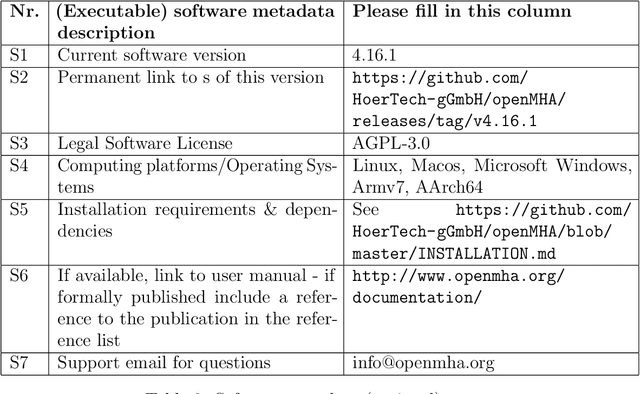
Abstract:open Master Hearing Aid (openMHA) was developed and provided to the hearing aid research community as an open-source software platform with the aim to support sustainable and reproducible research towards improvement and new types of assistive hearing systems not limited by proprietary software. The software offers a flexible framework that allows the users to conduct hearing aid research using tools and a number of signal processing plugins provided with the software as well as the implementation of own methods. The openMHA software is independent of a specific hardware and supports Linux, MacOS and Windows operating systems as well as 32- bit and 64-bit ARM-based architectures such as used in small portable integrated systems. www.openmha.org
 Add to Chrome
Add to Chrome Add to Firefox
Add to Firefox Add to Edge
Add to Edge